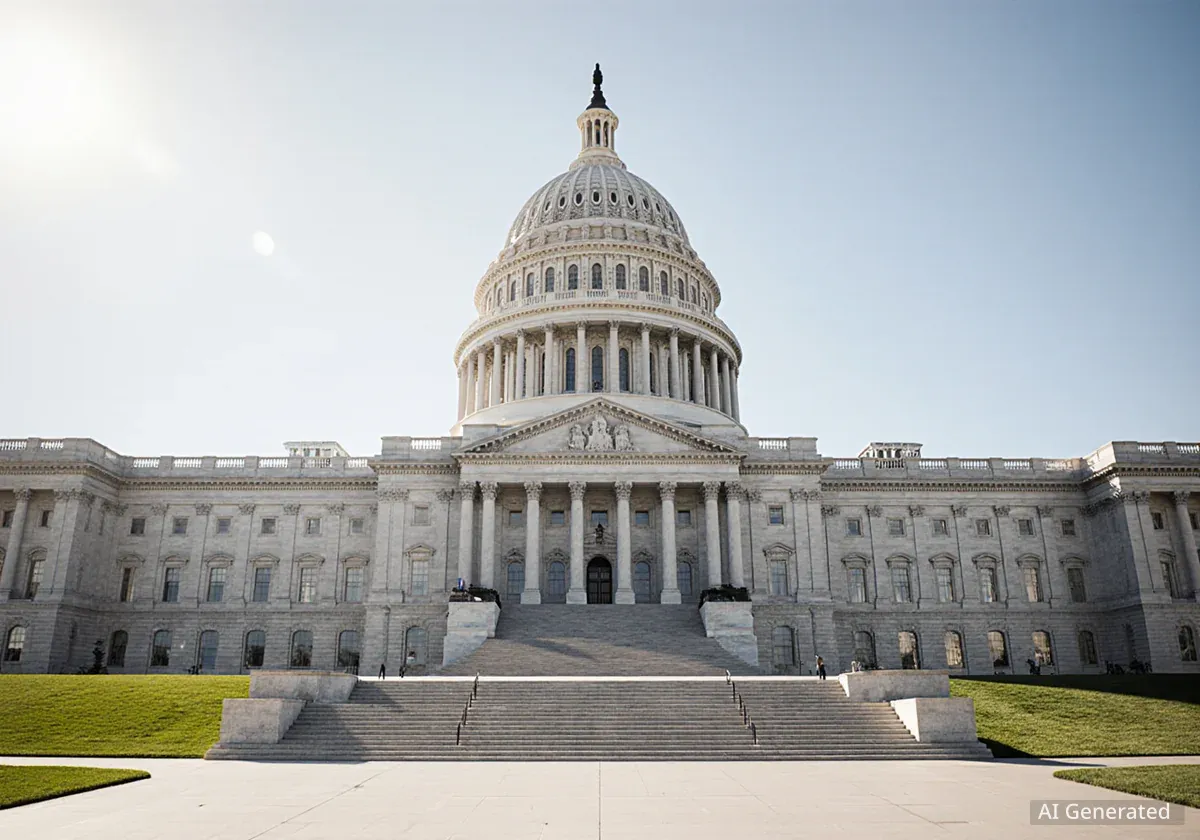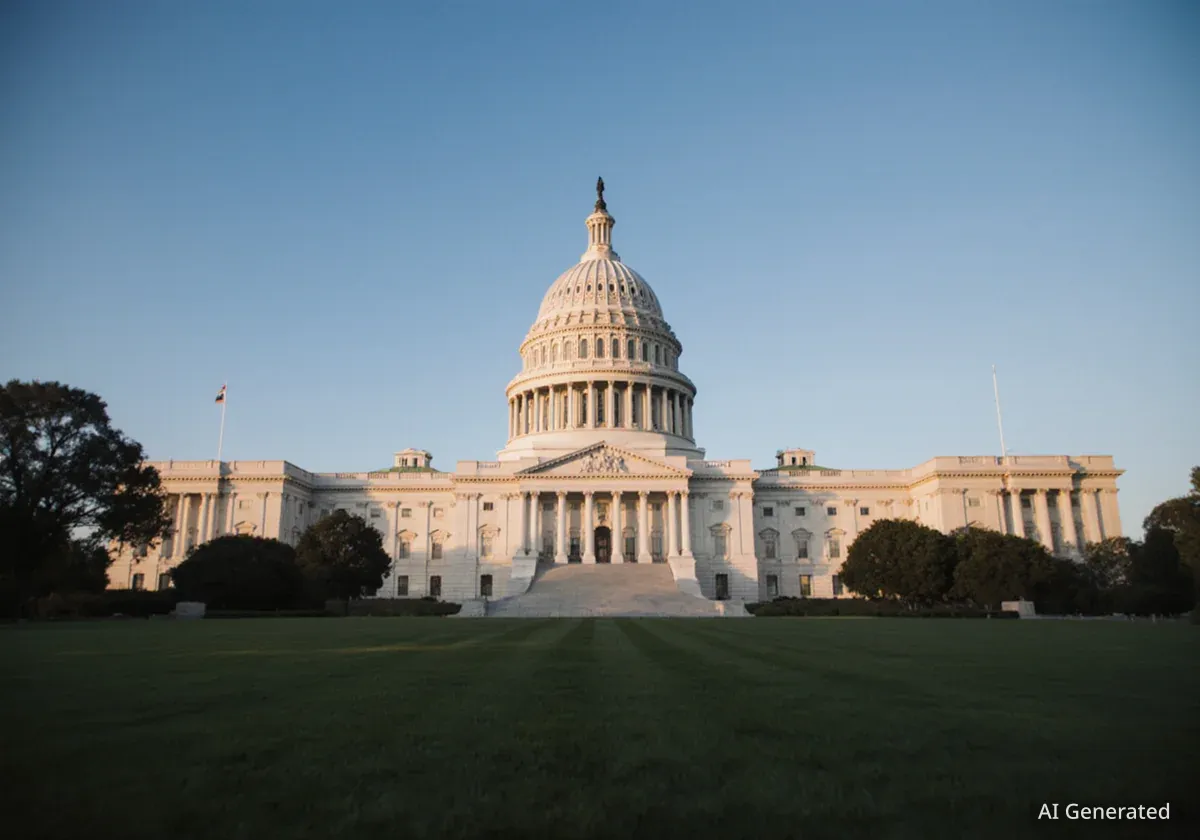Recent commentary on the Gaza conflict has drawn parallels between diplomatic efforts and real estate transactions, particularly concerning former U.S. President Donald Trump's approach. This perspective emerges as Hamas faces significant internal pressure, with its authority eroding among a weary Gazan population and shifting dynamics among regional Arab nations.
Key Takeaways
- Hamas is confronting a severe internal crisis, marked by declining public support and challenges from local militias within Gaza.
- Donald Trump's diplomatic style is being analyzed through the framework of his real estate background, focusing on high-profile deals over complex implementation.
- Key Arab nations, including Egypt, Saudi Arabia, and the UAE, are reportedly shifting their stance, viewing Hamas as a strategic liability rather than an asset.
- Critics argue that a transactional approach to the Middle East conflict overlooks deep-rooted historical, cultural, and ideological factors.
Hamas Faces Internal Collapse
The situation within the Gaza Strip indicates a period of unprecedented strain for Hamas. Since its inception, the organization has not faced an existential challenge of this magnitude. Reports from the region describe a population exhausted by conflict and deprivation.
Public sentiment appears to be shifting dramatically. The focus for many Gazans has moved from supporting the resistance, or mouqawamah, to securing basic necessities like food. This has led to a deterioration of public confidence in Hamas's leadership.
Rise of Internal Dissent
The weakening of Hamas's authority has created a power vacuum, which is being filled by various local groups. These include armed tribes, breakaway factions, and even former Hamas operatives who are now defying the organization's control.
This internal fragmentation presents a dual threat to Hamas. The organization must contend with both the potential for a complete internal collapse and the rise of rival militias seeking to settle scores. Its internal security apparatus, the Wahdat Sahm, is reportedly working to manage these growing conflicts.
A Symbolic Shift
Large numbers of Gazan civilians have been moving toward the Al-Mawasi area. Observers interpret these movements not just as a search for safety but as a symbolic break from Hamas's rule, signaling a profound change in the public's perception of the group from protector to a source of hardship.
A Transactional Approach to Diplomacy
Commentators have noted that former President Donald Trump's approach to complex geopolitical issues often mirrors his background as a real estate developer. This style prioritizes the appearance of a successful deal, often marked by photo opportunities and dramatic handshakes, rather than the intricate details of a lasting resolution.
This pattern was observed during summits with North Korea's Kim Jong Un and other high-stakes meetings. While these events generated significant media attention, they often resulted in limited tangible outcomes. For a dealmaker, success can be measured by the headline and the perceived value, not necessarily by fundamental changes on the ground.
Gaza as a Distressed Asset
In collaboration with real estate developer Steve Witkoff, Trump's perspective on Gaza has been described as viewing the territory as a distressed asset. The logic of this approach is straightforward: acquire an undervalued property, invest in its improvement, and sell it for a profit.
However, analysts caution that this business-centric model is ill-suited for the Middle East. The "refurbishment" required in this context is not physical but deeply psychological and societal. The foundations of the conflict are built on generations of history, faith, and bloodshed, not on market values.
"Here, an 'agreement' serves only as a preface to a new stage, rather than the conclusion of the entire narrative."
Shifting Regional Alliances
Simultaneously, a significant realignment is occurring among key Arab states. A bloc including Egypt, Saudi Arabia, the United Arab Emirates, and even Qatar has begun to signal a unified objective: to stabilize the region and conclude the current phase of the Gaza conflict.
There is a growing consensus that the concept of "resistance" as embodied by Hamas has become a strategic liability. Several factors contribute to this changing perspective:
- Economic Disruption: Attacks by groups like the Houthis have severely impacted commercial shipping and trade routes.
- Financial Strain: The conflict and its fallout have incurred significant economic costs for neighboring countries.
- Fear of Escalation: There is widespread concern that the conflict could expand into a broader, more devastating regional war.
As a result of these pressures, Hamas is increasingly seen not as part of a potential solution but as the primary obstacle to achieving regional stability.
The Concept of Taqiyya
Critics of a purely transactional diplomatic approach point to the Islamic concept of taqiyya. This principle allows for calculated deception or dissimulation in the face of persecution or to achieve a strategic objective. In this context, some analysts fear Hamas could feign compromise to secure a deal, only to regroup and rearm once pressure subsides, making any agreement temporary.
The Path Forward and Its Perils
The current diplomatic landscape is complex. The United States has put forward a multi-point plan that has garnered international support. However, immense pressure for a compromise, coupled with significant Qatari funding, could alter the final outcome.
Given its weakened position, Hamas may be inclined to accept the less stringent components of a proposed agreement. This would allow the group to claim a victory internally while avoiding the critical step of disarmament. In such a scenario, Israel would likely be pressed to offer substantial concessions and relief in return.
Ultimately, the success of any deal depends on sustained international pressure and the unpredictable dynamics on the ground in Gaza. The notion of closing a deal as one would a real estate contract in Atlantic City fails to recognize the region's ancient complexities. The Middle East operates on its own unique set of rules, where faith, tribal laws, and history are the dominant currencies. Any agreement reached is unlikely to be a final resolution but rather the beginning of the next chapter.





